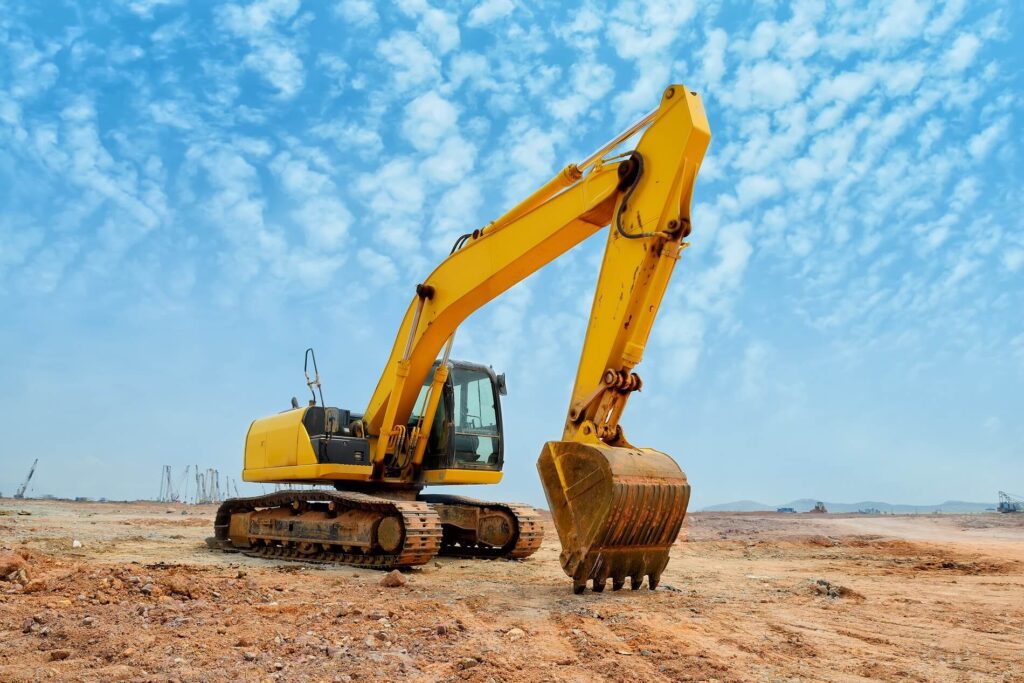Aerial Lift Rental in Tuscaloosa AL: Protect and Reliable High-Reach Equipment
Aerial Lift Rental in Tuscaloosa AL: Protect and Reliable High-Reach Equipment
Blog Article
Checking Out the Financial Conveniences of Renting Building Tools Contrasted to Possessing It Long-Term
The choice in between owning and leasing building and construction equipment is pivotal for monetary management in the industry. Renting offers immediate price savings and operational adaptability, allowing business to designate sources much more successfully. On the other hand, possession comes with significant lasting economic dedications, including maintenance and devaluation. As service providers weigh these choices, the impact on cash circulation, job timelines, and innovation accessibility becomes progressively considerable. Recognizing these subtleties is important, especially when taking into consideration just how they align with specific project requirements and economic methods. What factors should be focused on to ensure ideal decision-making in this complicated landscape?
Cost Comparison: Renting Out Vs. Having
When evaluating the monetary implications of possessing versus renting out building tools, a comprehensive expense contrast is essential for making informed choices. The selection in between renting out and possessing can substantially influence a company's profits, and recognizing the connected costs is critical.
Renting building devices generally entails lower upfront prices, allowing companies to designate capital to various other functional needs. Rental expenses can accumulate over time, potentially exceeding the cost of possession if equipment is required for a prolonged period.
Alternatively, owning building and construction tools needs a substantial initial investment, along with recurring costs such as funding, insurance coverage, and devaluation. While ownership can lead to long-lasting financial savings, it also locks up capital and might not give the exact same degree of flexibility as leasing. In addition, owning equipment demands a commitment to its utilization, which might not constantly align with job needs.
Eventually, the decision to lease or have needs to be based on a detailed evaluation of specific project demands, monetary capacity, and long-term strategic objectives.

Maintenance Costs and Obligations
The selection in between renting out and possessing building and construction devices not just includes monetary considerations however additionally encompasses ongoing upkeep expenses and obligations. Possessing tools requires a significant commitment to its upkeep, that includes regular assessments, repair services, and prospective upgrades. These obligations can rapidly accumulate, leading to unanticipated prices that can stress a budget plan.
In comparison, when leasing tools, maintenance is typically the obligation of the rental firm. This arrangement allows service providers to prevent the economic worry connected with wear and tear, in addition to the logistical challenges of scheduling fixings. Rental arrangements commonly consist of provisions for upkeep, implying that contractors can concentrate on completing projects rather than worrying regarding tools condition.
Furthermore, the diverse variety of tools available for lease enables business to choose the most up to date models with sophisticated technology, which can boost performance and efficiency - scissor lift rental in Tuscaloosa Al. By selecting rentals, companies can stay clear of the long-term obligation of tools depreciation and the connected maintenance migraines. Inevitably, reviewing upkeep expenditures and duties is vital for making a notified decision concerning whether to lease or own construction tools, significantly affecting total project expenses and operational performance

Depreciation Influence On Possession

A substantial aspect to consider in the choice to own building tools is the effect of devaluation on total possession expenses. Depreciation represents the decrease in worth of the devices in time, affected by variables such as usage, damage, and improvements in innovation. As equipment ages, its market worth reduces, which can significantly impact the owner's monetary placement when it comes time to trade the devices or offer.
For building firms, this depreciation can convert to considerable losses if the tools is not made use of to its fullest capacity or if it lapses. Owners need to represent depreciation in their monetary forecasts, which can cause higher total expenses compared to leasing. Furthermore, the tax obligation implications of devaluation can be intricate; while it may give some tax obligation benefits, these are commonly countered by the reality of minimized resale value.
Ultimately, the problem of depreciation emphasizes the value of recognizing the lasting financial commitment included in possessing building equipment. Firms need to carefully evaluate exactly how commonly they will make use of the devices and the potential economic impact of devaluation to make an informed decision concerning possession versus leasing.
Monetary Flexibility of Leasing
Renting out construction equipment offers substantial economic flexibility, permitting firms to assign resources much more efficiently. This versatility is especially crucial in a market identified by changing job needs and differing workloads. By opting to rent out, organizations can avoid the considerable capital investment required for acquiring devices, protecting capital for various other functional needs.
Additionally, leasing tools makes it possible for business to tailor their tools choices to details task needs without the long-lasting commitment connected with ownership. This means that services can quickly scale their devices inventory up or down based on anticipated and existing project needs. Consequently, this flexibility lowers the danger of over-investment in equipment that may become underutilized or outdated in time.
An additional monetary benefit of renting is the possibility for tax obligation benefits. Rental settlements are frequently taken into consideration operating costs, enabling immediate tax obligation reductions, unlike depreciation on owned and operated tools, which is topped several years. scissor lift rental in Tuscaloosa Al. This instant expenditure acknowledgment can further boost a business's cash money setting
Long-Term Job Factors To Consider
When reviewing the lasting demands of a building company, the decision Go Here in between having and renting tools becomes a lot more intricate. Secret factors to consider include task duration, regularity of use, and the nature of upcoming tasks. For jobs with prolonged timelines, buying tools might appear advantageous because of the possibility for reduced overall prices. Nonetheless, if the equipment will certainly not be utilized continually throughout tasks, possessing might result in underutilization and unnecessary expenditure on upkeep, insurance policy, and storage.
In addition, technical developments position a significant consideration. The building and construction market is developing quickly, with brand-new tools offering improved efficiency and safety attributes. Leasing allows firms to access the most recent modern technology without devoting to the high in advance prices connected with investing in. This adaptability is particularly helpful for services that deal with varied projects requiring various kinds of equipment.
Furthermore, economic security plays a crucial function. Having equipment usually requires considerable resources investment and depreciation concerns, while renting permits for more foreseeable budgeting and capital. Eventually, see post the selection between renting out and owning must be straightened with the critical purposes of the construction organization, taking into account both awaited and existing task needs.
Conclusion
In final thought, leasing building equipment uses significant economic advantages over long-lasting ownership. Eventually, the decision to lease rather than own aligns with the dynamic nature of construction tasks, allowing for flexibility and access to the newest tools without the economic concerns connected with ownership.
As devices ages, its market value reduces, which can dramatically affect the owner's financial setting when it comes time to trade the tools or sell.
Renting construction devices provides considerable economic versatility, permitting companies to assign resources much more efficiently.In addition, leasing tools makes it possible for business to tailor their tools choices to particular job needs without the long-term dedication associated with possession.In conclusion, leasing construction devices offers substantial monetary benefits over lasting possession. Inevitably, the choice to rent rather than own like it aligns with the vibrant nature of construction tasks, permitting for versatility and access to the most current tools without the monetary burdens associated with ownership.
Report this page